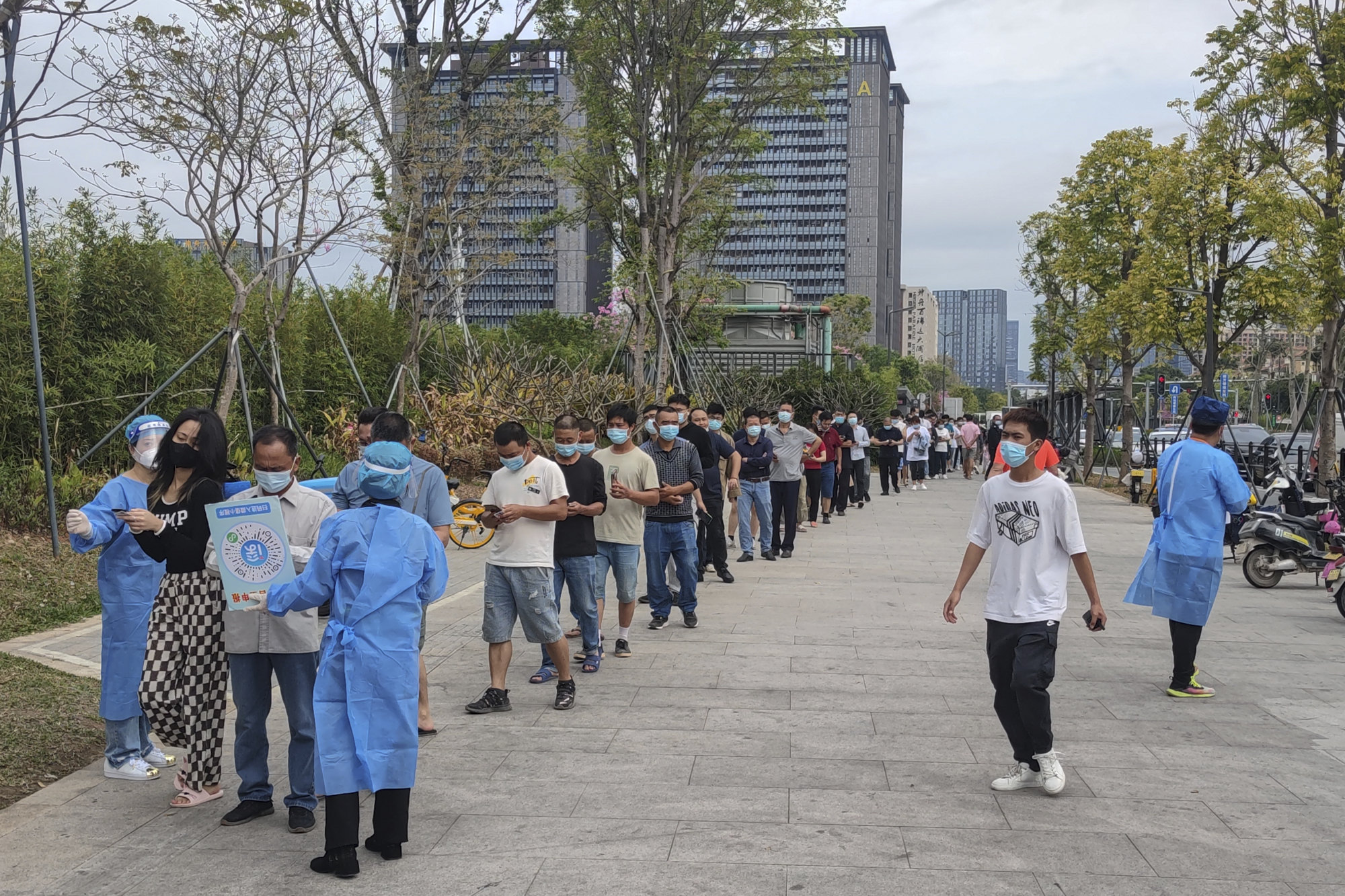
China’s April new home price index falls for the first time in seven years as Covid-19 adds to the slumping property market’s cash woes
- The index of home prices in 70 of China’s benchmark cities fell 0.1 per cent in April from a year ago, the first monthly decline since a 0.4 per cent drop in November 2015
- Prices of lived-in homes fell 0.3 per cent, dropping for the eighth straight month
China’s home prices fell across the board last month, with newly completed abodes marking their first monthly decline in almost seven years, as a resurgent Covid-19 outbreak in several major cities exacerbated the slumping property market.
The index of home prices in 70 of China’s benchmark cities fell 0.1 per cent in April from a year ago, the first monthly decline since a 0.4 per cent drop in November 2015, according to the National Bureau of Statistics. Prices of lived-in homes fell 0.3 per cent in April, compared with March, dropping for the eighth straight month.
“The signal is very meaningful,” said Yan Yuejin, research director at Shanghai-based E-house China Research and Development Institute. “The turning point in housing prices fully shows that the real estate market is facing downward pressure.”

Prices remained unchanged in Shanghai, locked down since April 1, compared with the 0.3 per cent gain a month earlier in China’s commercial hub.
Declining prices and contracting transactions underscore why China’s banking regulator and banks are cutting their mortgage rates in cities like Tianjin to revive the stagnating property market and the broader economy. A record number of edicts, administrative measures and policies had been issued since January to relax and reverse the clampdown on prices that had been in place since 2017, according to Centaline Property Agency.

Market fundamentals have deteriorated and require vigilance, Yan said, adding that while “a large wave of policies” are being implemented, they take time to take effect.
“All kinds of work to stabilise housing prices and expectations need to be accelerated, otherwise the housing price index will continue to [drop], which will have an impact on the stability of the real estate market,” Yan said.
The declines in new home prices gathered pace in April, with the index falling 0.3 per cent last month, compared with the drop of 0.1 per cent in March. As many as 47 cities reported dropping prices, nine more than a month earlier.

The data shows the lack of interest by buyers to commit to big-ticket financial commitments like property, said Li Yujia, senior economist at the Guangdong Urban and Rural Planning and Design Institute, a policy advisory body.
The second-hand housing market, which suffers from the lack of cachet and marketing support, discounts and promotions for new launches, is even more vulnerable than new projects, Li said. In cities such as Hangzhou, new homes are priced cheaper than lived-in property, putting pressure on the second-hand market, Li added.
If last year was bad for Evergrande, Kaisa and Fantasia, just wait for 2022
Transactions of new residential property in 30 cities contracted by more than half in the past week, compared with a year ago, Goldman Sachs said in a report, citing its own data. The bank’s metric for real estate inventory in major cities rose further in April, mainly because of weaker new home sales in lower-tier cities.
The bank also noted that there were declines in the growth in outstanding property sector loans and average interest rates on new mortgage loans.
“Much weaker-than-expected credit data also pointed to subdued housing demand amid protracted Covid restrictions despite more housing policy easing,” Goldman said, adding “the property sector is not yet out of the woods and may continue to weigh on GDP growth in coming quarters.”

